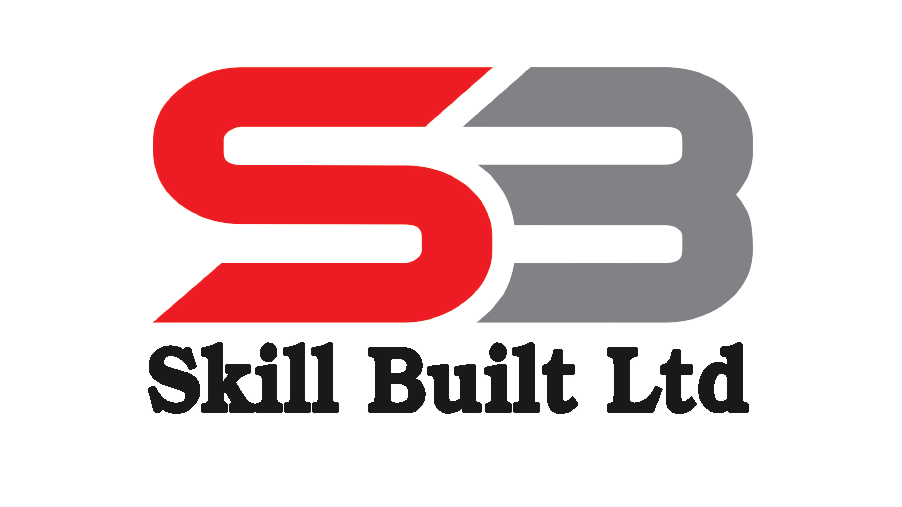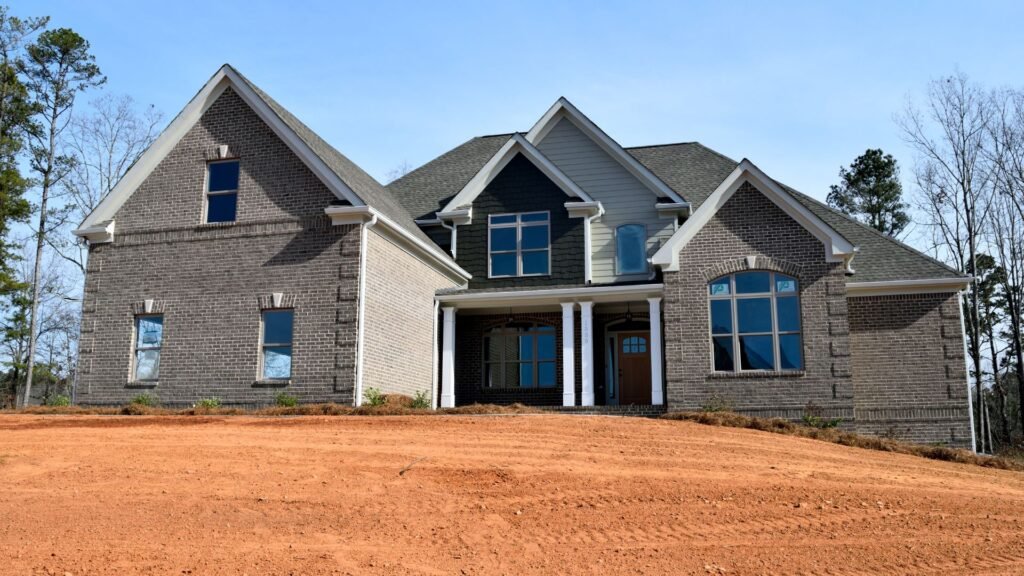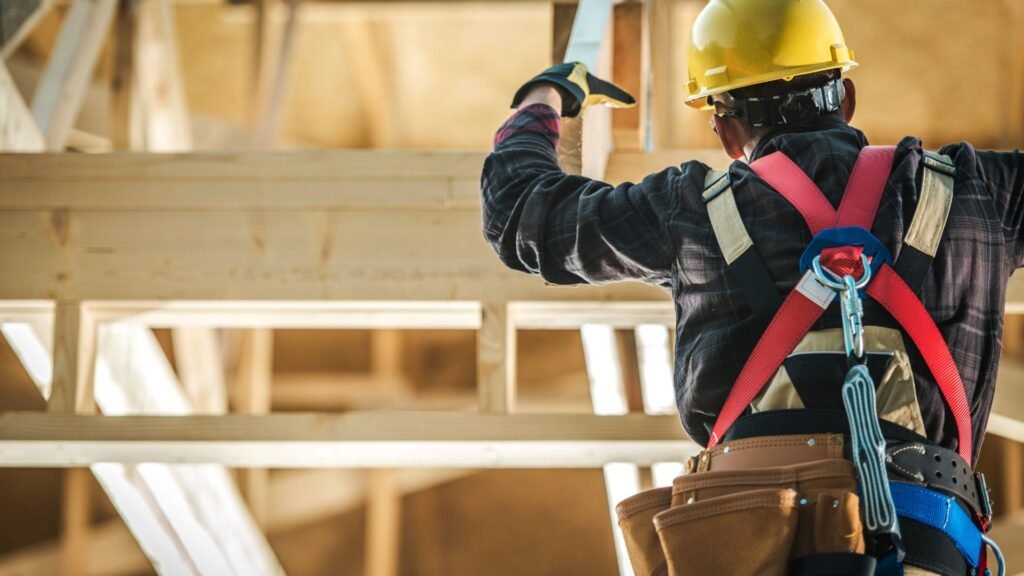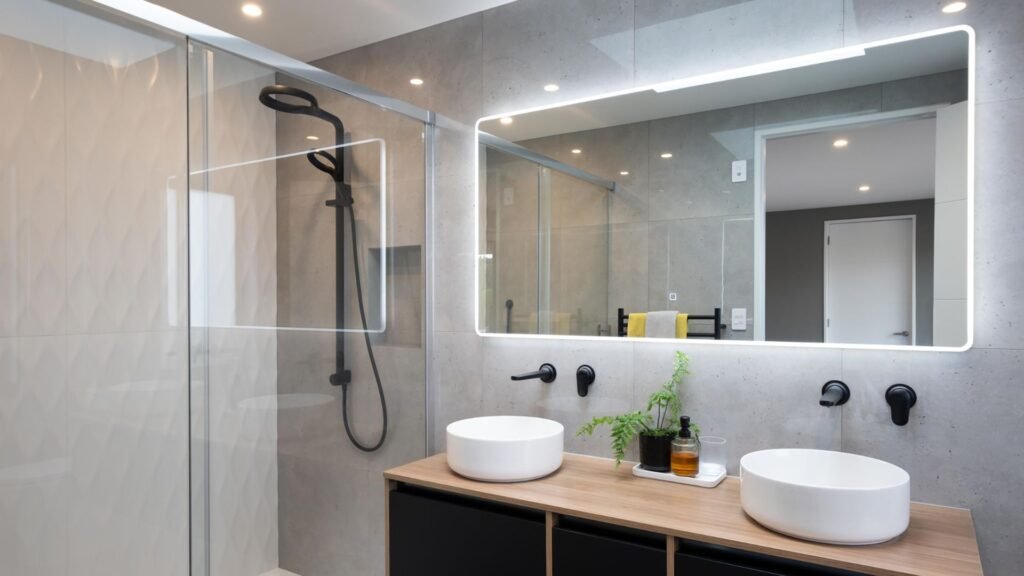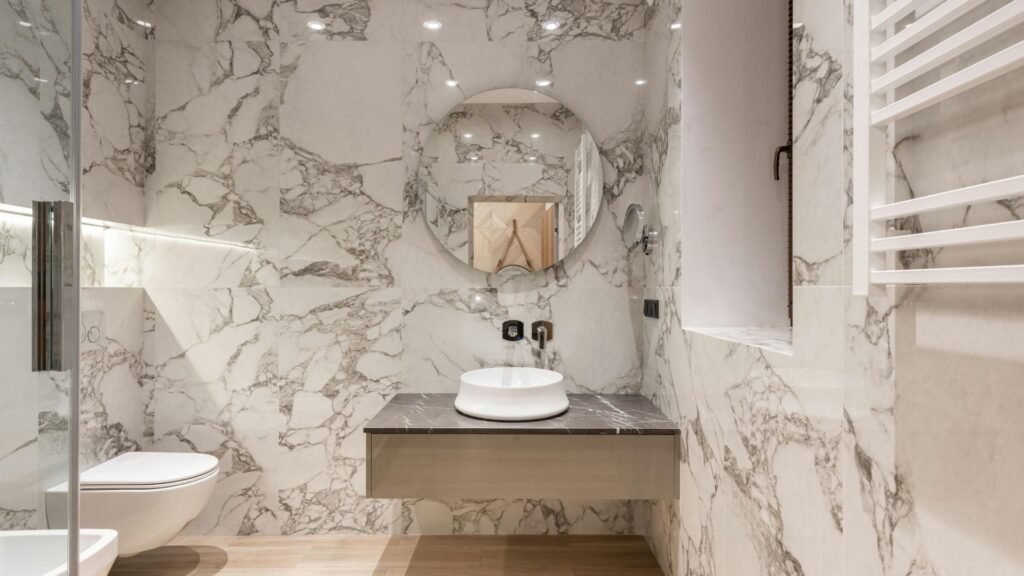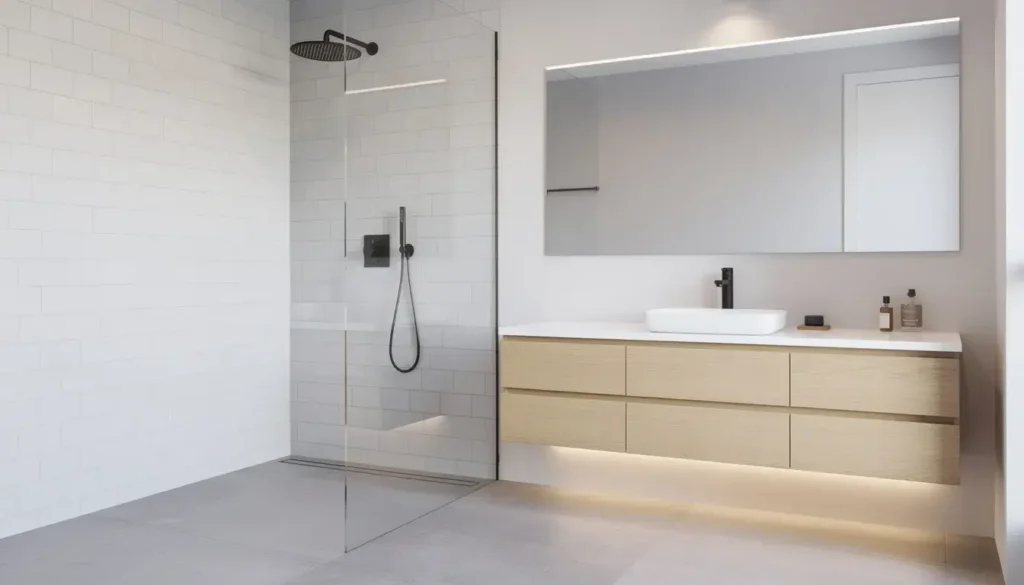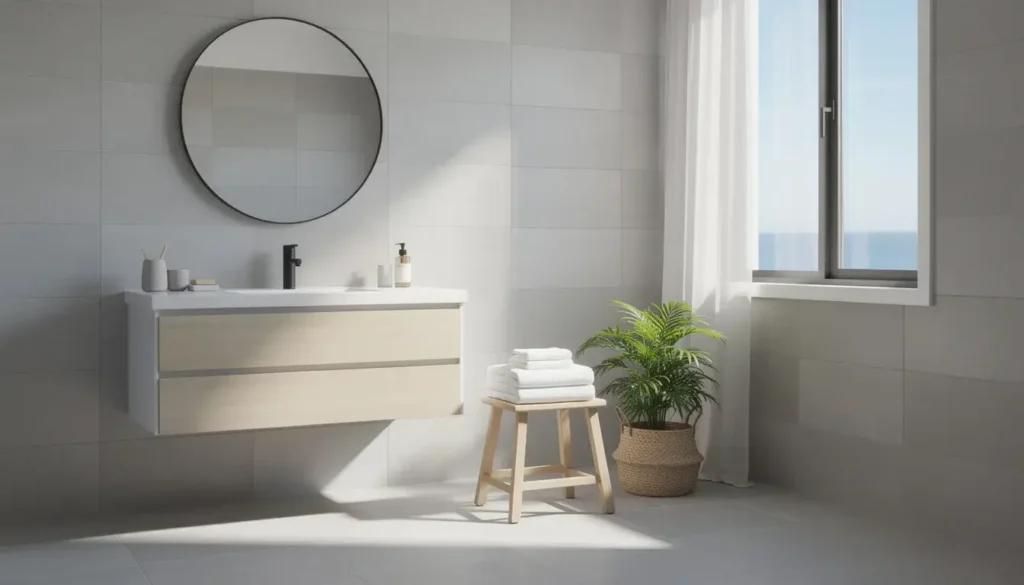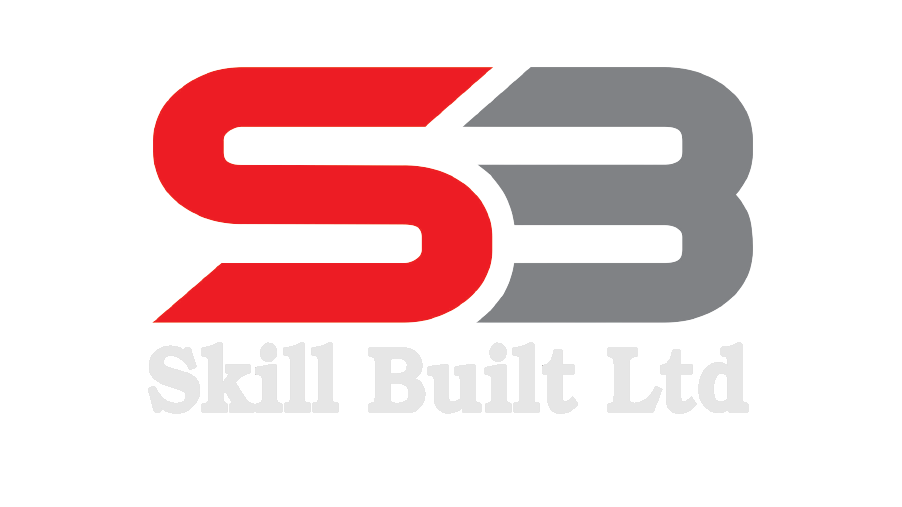Welcome to your go-to guide for everything you need to know about new build homes in NZ. Whether you’re a first-home buyer, growing family, or investor, new builds offer modern designs, energy efficiency, and lower maintenance that older homes can’t match. In this article, you’ll learn the real benefits of choosing a new build, how the process works from start to finish, what to watch out for, and tips to make the right decision. If you’re considering building or buying a brand-new home, this guide will help you move forward with confidence.
New build homes in NZ are newly constructed residential properties that have never been lived in before. They offer modern designs, energy-efficient features, and low maintenance costs. Many buyers choose new builds for their customisation options, fixed-price contracts, and eligibility for first-home grants and KiwiSaver support.
Table of Contents
Why Choose A New Build Home In NZ?
Buying a new build home in New Zealand offers clear advantages that appeal to first-home buyers, growing families, and investors alike. These homes are designed for modern living, built to current building standards, and often come with features that reduce long-term costs. If you’re weighing your options between a new build and an existing property, here are key reasons why a new build home could be the better choice.
Move-In Ready With Fewer Repairs
New build homes are turnkey-ready. You don’t need to worry about worn-out carpets, outdated kitchens, or hidden structural issues. Everything, from the walls to the roofing and appliances, is brand new and under warranty. For many buyers, this means no extra cost after moving in and a smoother transition into homeownership. You’re not spending weekends patching up walls or replacing old plumbing. You’re settling into a home that’s built to last.
Customisation Options (Layouts, Fittings)
Many developers in NZ allow buyers to choose interior layouts, fittings, finishes, and even external cladding. This gives you more control over the final product, making it feel like your own from day one. Want an open-plan kitchen with soft-close drawers and a walk-in pantry? You can get exactly that. Customisation ensures your new home reflects your style and fits your lifestyle, rather than forcing you to adapt to someone else’s design.
Lower Maintenance Costs
Since everything in a new build is freshly installed, the need for immediate repairs is almost nonexistent. You won’t be dealing with rusted pipes, cracked tiles, or outdated wiring. Most new homes also come with warranties that cover structural defects and major systems for up to 10 years. This means lower upkeep costs in the first several years, which can significantly ease financial pressure, especially for first-time buyers.
Energy-Efficient Features (Double Glazing, Insulation)
New build homes in NZ are required to meet the current building code, which includes strict energy efficiency standards. Features like double-glazed windows, full insulation, and energy-efficient appliances are now standard in most new builds. These improvements help reduce your power bills, keep your home warmer in winter, and cooler in summer. They also contribute to a lower carbon footprint, which is becoming more important to Kiwi homeowners.
Real Buyer Insight
Sarah, a first-home buyer from Hamilton, recently moved into her newly built home and shared her experience: “We looked at older properties for months, but every one needed work. Choosing a new build gave us peace of mind, no unexpected costs and we could choose every finish ourselves. It just made sense.”
This kind of direct feedback highlights why more Kiwis are turning to new builds. It’s not just about aesthetics or savings, it’s about having confidence in where you live.
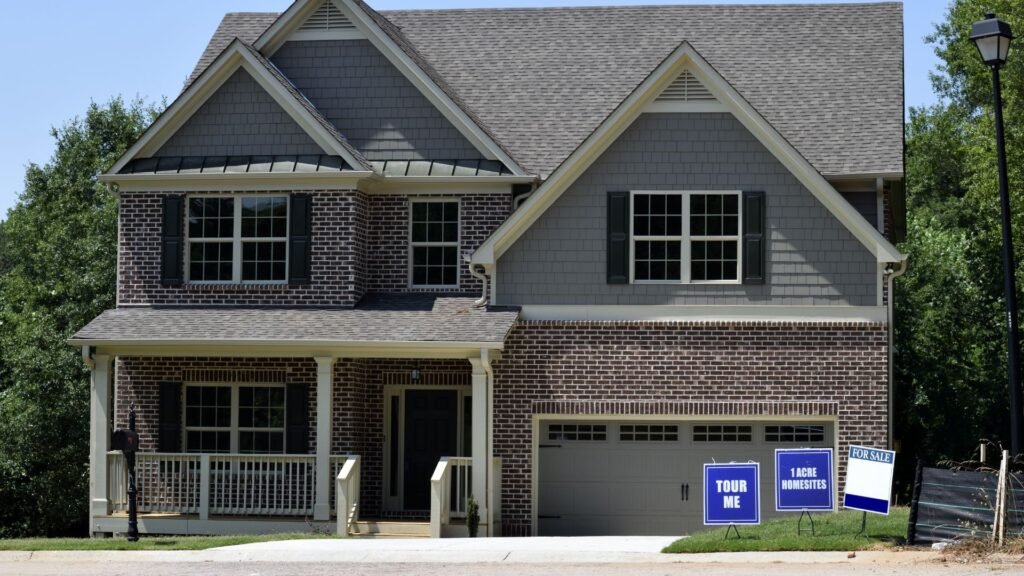
New Build Vs. Existing Homes – Pros And Cons
When comparing new build homes NZ buyers often weigh up the benefits of modern builds versus character homes. Each option has its own strengths and drawbacks, and the right choice depends on your lifestyle, budget, and long-term goals. Understanding the key differences can help you make a confident and informed decision.
- New build homes are attractive to many because of their fresh construction, energy-efficient materials, and lower maintenance demands. They usually come with modern layouts, open-plan living, double glazing, and efficient insulation. Most also include a 10-year builder’s warranty, which offers peace of mind. These homes are often located in new subdivisions and may offer fixed-price packages, which is helpful for budgeting. However, the downside is that you might face longer build times and delays depending on the developer or building timeline.
- Existing homes, on the other hand, are usually located in established neighbourhoods with mature trees, larger sections, and existing infrastructure like schools, shops, and transport. These properties often have more character and may include period features that some buyers value. They’re also move-in ready, meaning you can settle quickly without waiting months for construction. But they may come with hidden issues such as outdated wiring, poor insulation, or the need for major upgrades, which can lead to unexpected costs.
Here’s a quick comparison to help you decide:
New Build Homes
- Brand-new construction
- Modern layouts and energy efficiency
- Lower maintenance in early years
- Builder warranties included
- Longer build times possible
- Often located in new subdivisions
Existing Homes
- Located in established areas
- Mature gardens and larger sections
- Immediate availability
- May require renovations or upgrades
- Less energy-efficient
- No builder warranty
Choosing between a new build and an existing home depends on what matters most to you, modern comfort and warranties, or location and character. By understanding the trade-offs, you can choose a home that fits your current needs and future plans.
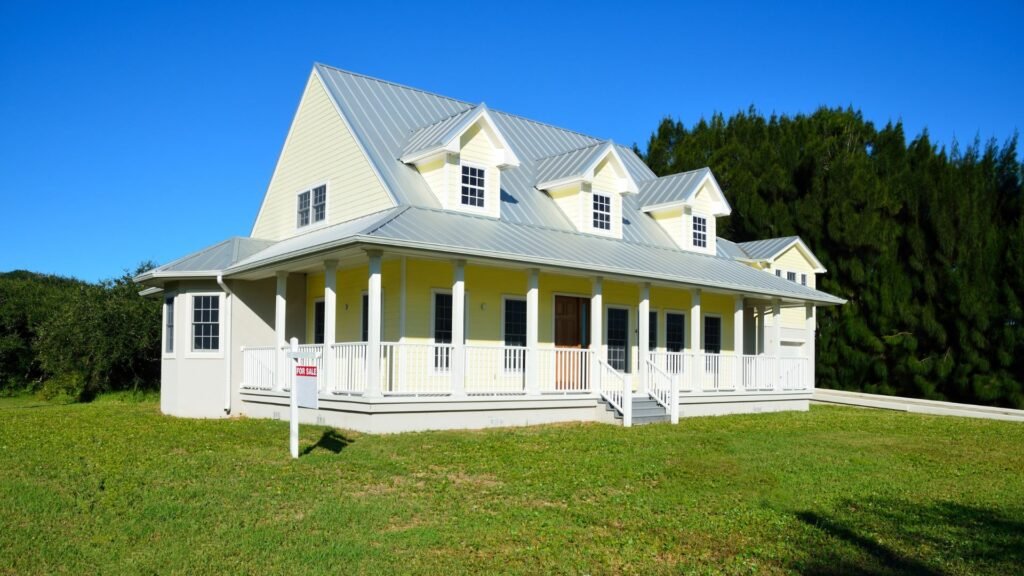
Different Types Of New Builds Available In NZ
When looking into new build homes in NZ, it’s important to understand the different types of properties available. Each type serves different needs depending on your lifestyle, budget, and location. From compact city apartments to spacious family homes, New Zealand offers a wide range of new build options to suit buyers across the country.
- Standalone Homes
Standalone homes are traditional detached houses built on their own section of land. These are ideal for families or those wanting more space, privacy, and outdoor areas. They typically offer larger floor plans and the flexibility to customize both the interior and exterior layout. In areas like South Auckland and Christchurch, standalone homes in new subdivisions remain a popular choice due to available land and affordable house-and-land packages. - Townhouses
Townhouses are multi-level homes that share one or more walls with neighboring units. They’re increasingly common in urban areas like Wellington and Auckland, where land is limited and housing density is rising. Townhouses are a smart option for buyers who want a low-maintenance property in a central location. They often come with a small yard or balcony and appeal to young professionals, downsizers, and small families. - Apartments
Apartments are a common new build choice in high-demand city centers such as Auckland CBD and Wellington. These are typically located in multi-storey buildings and suit people looking for convenience, proximity to work, and a low-maintenance lifestyle. While space may be more limited, new build apartments often come with modern finishes, security features, and shared amenities like gyms or rooftop terraces. - House & Land Packages
A house and land package combines both the land and the home build in a single contract, usually offered by developers in growing suburbs or regional areas. These packages are common in Christchurch and Hamilton and are ideal for first-home buyers who want a new home without the complexity of managing different contractors. You can often choose from several designs and personalize the finishes before construction begins. - Prefab Or Modular Builds
Prefabricated and modular homes are built off-site in factories and then transported to the land for assembly. These builds are gaining traction in both urban and rural parts of NZ due to their speed, cost-effectiveness, and reduced construction waste. Many prefab homes now meet high design and energy efficiency standards, offering a modern alternative to traditional builds with quicker turnaround times.
Each of these new build types offers different benefits. Standalone homes give you space and freedom, while townhouses and apartments offer convenience in prime locations. House and land packages provide a streamlined process, and prefab homes are ideal for those on tighter timelines or budgets. When choosing your ideal home type, consider where you want to live, how much space you need, and how involved you want to be in the building process.
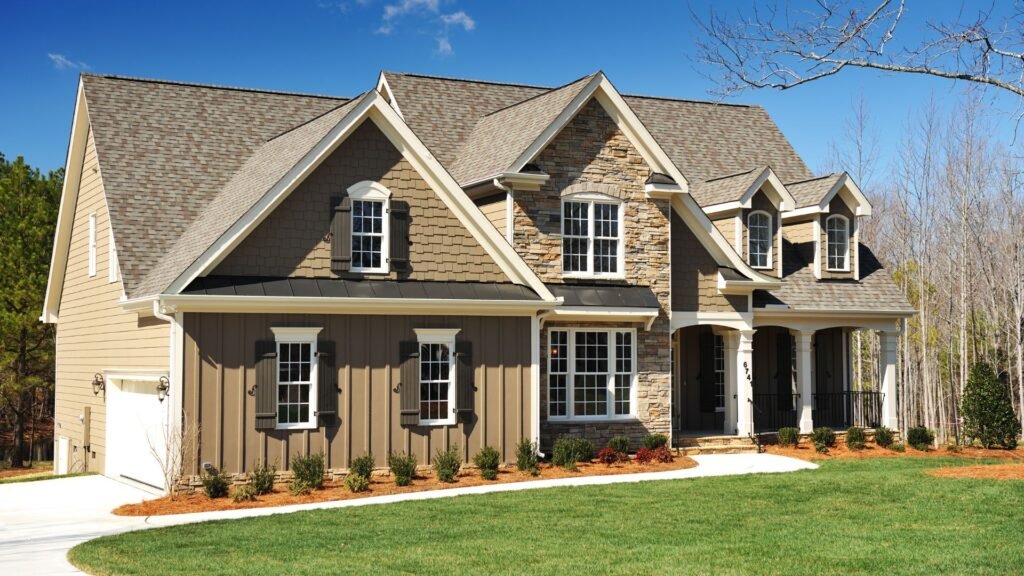
The Process Of Buying Or Building A New Home
Buying or building a new home in New Zealand is an exciting milestone, but it’s not something you want to rush. Whether you’re working with a developer or managing a build from the ground up, understanding each step of the process helps you avoid costly mistakes and delays. Here’s a clear breakdown of what to expect, and what to prepare for, at each stage.
Set A Budget And Get Pre-Approval
Before looking at properties or building plans, you need to know exactly how much you can borrow. Talk to your bank or mortgage adviser to get a home loan pre-approval. This gives you a clear spending limit and shows sellers or developers that you’re a serious buyer. Make sure to include extra costs like legal fees, site preparation, insurance, and any upgrades you might want during the build.
Research Developers Or Builders
Not all builders are equal. Spend time researching reputable companies that have experience in the type of home you want. Look at reviews, visit showhomes, and ask questions about timelines, warranties, and past projects. Choosing a builder with a solid track record in NZ’s building industry is one of the most important decisions you’ll make during this process.
Choose A Design Or Package
Depending on your budget and needs, you can choose from:
- A house and land package
- A pre-designed plan with limited customisation
- A fully custom build
Some developers offer turn-key solutions, where the home is move-in ready when completed. Others work with staged builds, where you manage different parts of the construction. Make sure you understand what’s included and what might cost extra, such as fencing, driveways, or landscaping.
Sign Contracts
Once you’ve finalised the design and agreed on pricing, it’s time to sign the building contract. Before doing so, read every detail carefully or get a lawyer to review it. Make sure the contract includes fixed-price terms, build timelines, specifications, and warranties. Ask questions about what happens if delays occur or if material prices increase during construction.
Construction And Inspections
After council consents are approved, construction begins. The builder will work through several phases: site prep, foundation, framing, roofing, internal fit-out, and final finishes. Along the way, independent inspections are carried out to ensure each stage meets NZ building codes. Stay in touch with the builder during this time, and if possible, visit the site regularly to monitor progress.
Final Settlement And Handover
Once the build is complete and the Code Compliance Certificate (CCC) is issued, you’ll go through the final handover. This includes a walk-through of the home, receiving keys, warranties, and documentation. If it’s a mortgage-funded build, your lender will release the final payment at this stage. Before signing off, ensure any agreed changes or fixes have been completed.
Tips To Avoid Delays Or Misunderstandings
- Ask For Timelines In Writing: Don’t rely on verbal promises. Make sure your contract includes a clear timeline with expected completion dates.
- Understand The Payment Structure: Many new builds operate on staged payments, meaning you pay as each phase is completed. Others are turn-key, where you pay one lump sum at the end. Know the difference and check that it fits your financial plan.
- Track Changes Carefully: If you make changes during the build, confirm all variations in writing and understand how they’ll affect cost and timelines.
This step-by-step process makes buying or building a new home in NZ less overwhelming. Taking the time to understand each phase protects your investment, ensures a smoother experience, and gets you into your new home with fewer surprises.
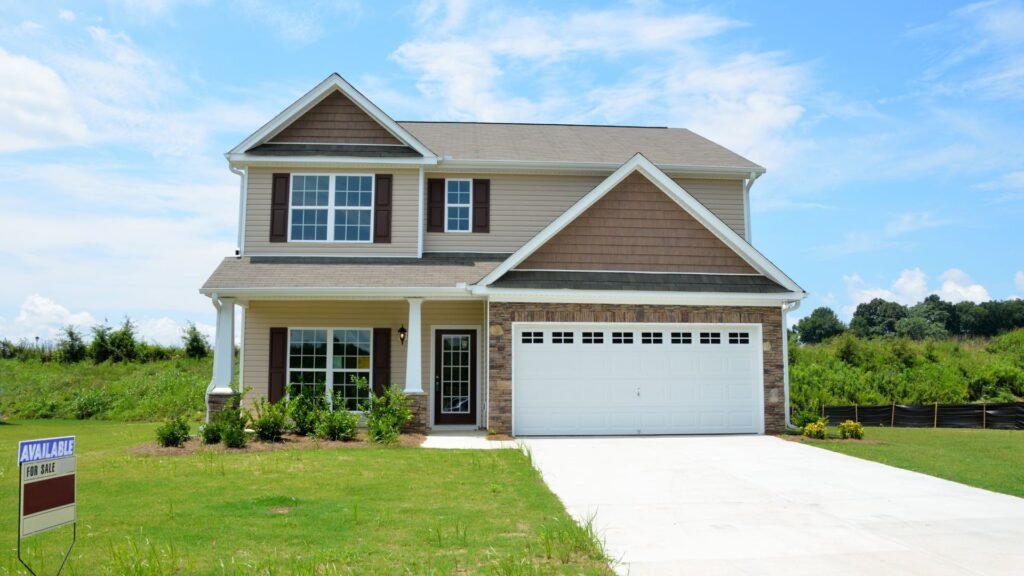
Legal And Financial Considerations
Before you commit to building or buying a new home, it’s important to understand the legal and financial steps involved. These are not just formalities, they can impact your timeline, costs, and ability to get finance approved. Whether you’re a first-home buyer or already own property, knowing what’s required will help you avoid surprises. This section covers the most important legal requirements for new builds in NZ, along with financial details like deposit rules and home loan options.
Understanding CCC (Code Compliance Certificate)
A Code Compliance Certificate (CCC) is an official document issued by your local council. It confirms that your new build has been completed according to the approved building consent and meets the New Zealand Building Code. You’ll need this certificate to legally live in or sell the property in the future. Never skip this step, it ensures the home has been built properly and protects you against future issues with insurance or resale. Always check that your builder will provide the CCC after construction is finished.
LIM Reports For Land
A Land Information Memorandum (LIM) report is provided by the local council and contains important information about the section of land you’re building on. This includes zoning, drainage, natural hazards, and any consents previously issued. Getting a LIM before you sign anything gives you a clear understanding of what you’re working with. It also helps you avoid building in areas prone to flooding, landslips, or legal restrictions. Every buyer should request a LIM as part of their due diligence.
Deposit Requirements (Especially For First-Home Buyers)
Deposit rules for new build homes can vary depending on the type of contract. For a turn-key build, you might only need a 10% deposit upfront with the balance due upon completion. For progressive payment builds, deposits can range from 5% to 20% with staged payments as work is completed. If you’re a first-home buyer, some lenders allow lower deposit thresholds, especially if you’re eligible for support from KiwiSaver or the First Home Grant. Be sure to check the exact deposit terms in your building contract before signing.
KiwiSaver And First Home Grant Eligibility
First-home buyers in New Zealand can tap into two major supports: KiwiSaver and the First Home Grant. If you’ve been contributing to KiwiSaver for at least three years, you can withdraw most of your balance to use as a home deposit. The First Home Grant offers up to $10,000 for new builds if you meet income and property value caps. These tools can make a big difference when you’re trying to get into the market. Always confirm your eligibility before making offers, and work with a mortgage adviser familiar with new build home mortgage NZ options.
Final Note On Legal Checks
Make sure all agreements are reviewed by a solicitor before you sign. The legal requirements for new builds NZ buyers must meet can include clauses about completion timelines, penalties, and warranties. Ignoring these could lead to financial risk or construction delays. A property lawyer can review the contract, explain your obligations, and ensure your rights are protected throughout the build.
By understanding these legal and financial details upfront, you’ll be in a stronger position to plan your budget, secure financing, and move forward with confidence. Whether you’re buying off the plan or building from scratch, having a clear picture of your responsibilities ensures a smoother, safer home-buying experience.
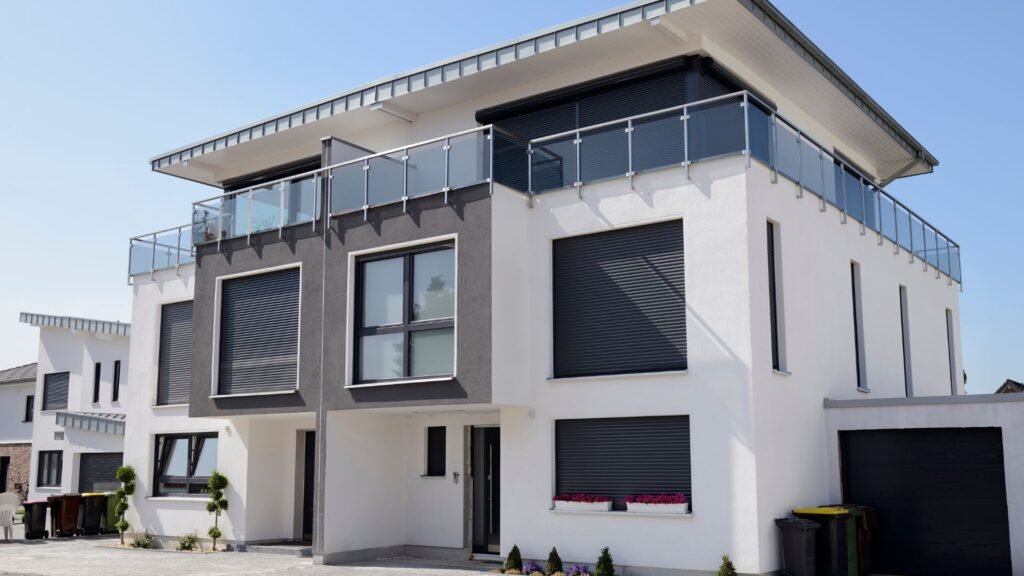
Popular Locations For New Build Homes In NZ
Choosing where to build or buy your new home is one of the biggest decisions you’ll make. In New Zealand, the demand for new build homes continues to grow across both urban and regional areas. Whether you’re after city convenience or the calm of a lifestyle block, several regions stand out for their strong development activity, housing availability, and growth potential.
Auckland (South And West)
Auckland remains the top location for new build homes in NZ, especially in the south and west. Areas like Papakura, Pukekohe, and Drury in South Auckland have seen rapid growth due to increased investment in infrastructure and housing developments. West Auckland suburbs such as Massey, Hobsonville, and Westgate offer a mix of family-friendly homes, modern townhouses, and strong community amenities. New builds here are often part of master-planned communities with parks, schools, and shopping centres nearby. According to data from REINZ, Auckland’s outer zones are seeing continued buyer interest due to more affordable land prices compared to central suburbs.
Hamilton And Tauranga
Hamilton and Tauranga have become attractive hubs for new build buyers, especially for those moving out of Auckland. Hamilton is growing fast due to its proximity to the Golden Triangle (Auckland-Hamilton-Tauranga) and major job hubs. Suburbs like Rototuna, Peacocke, and Flagstaff have multiple new subdivisions with house and land packages available. Tauranga, known for its coastal lifestyle, offers new builds in suburbs like Pāpāmoa and Bethlehem, combining lifestyle with convenience. Both cities offer good infrastructure, modern schools, and access to healthcare, making them ideal for families and retirees.
Christchurch Developments
Christchurch is one of the most affordable cities for new build homes in NZ. Post-earthquake reconstruction has led to high-quality developments with better building standards. Suburbs like Halswell, Rolleston, and Lincoln are popular choices, offering a mix of family homes and modern townhouses. The Selwyn District, in particular, is growing fast, attracting buyers with its larger land sizes and affordable prices. Many new builds in Christchurch are turn-key, meaning buyers can move in without managing the build process. This is especially appealing to out-of-town investors or first-home buyers looking for a simpler path to ownership.
Satellite Towns And Lifestyle Blocks
For buyers looking for more space, peace, or affordability, satellite towns and lifestyle blocks around major cities offer strong appeal. In the Waikato, places like Cambridge and Te Awamutu provide semi-rural living with good access to Hamilton. In Canterbury, Rangiora and Kaiapoi are popular for their larger sections and family-friendly communities. These areas offer lifestyle blocks, often with new builds that include modern amenities while allowing for privacy and land ownership. With remote work becoming more common, many Kiwis are choosing these towns for the space and value they offer without sacrificing connectivity.
These popular locations for new build homes in NZ reflect a mix of urban convenience and regional charm. Whether you’re looking to invest, upsize, or settle into your first home, exploring these regions can help you find the right fit for your lifestyle and budget.
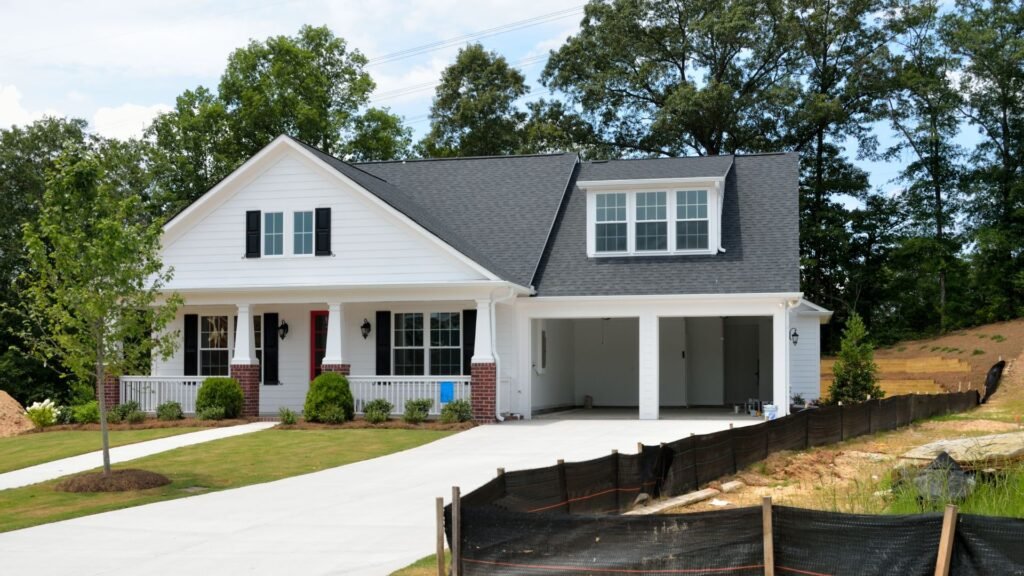
Tips For Choosing The Right Builder Or Developer
Choosing the right builder or developer is one of the most important steps when planning to buy a new build home in NZ. A good builder can make the process smooth, while the wrong one can lead to delays, hidden costs, and quality issues. Before signing any contracts, take time to do your homework. Below is a checklist of what to look for when selecting a reliable and experienced builder.
Reputation And Reviews
Start by checking the builder’s reputation. Look for reviews on Google, Facebook, and local forums. Real feedback from past clients can give you insight into how the builder communicates, handles issues, and sticks to deadlines. Ask friends, family, or real estate agents if they’ve had personal experience with the builder. A solid reputation is a strong sign you’re dealing with a trustworthy professional.
Showhomes And Past Work
Visit showhomes or completed projects to assess the builder’s workmanship. Walk through the homes, inspect the finishes, and look for consistency in quality. Many builders offer virtual tours or image galleries on their websites, but nothing beats seeing the results in person. Don’t be afraid to ask for addresses of past builds or client references, credible builders will gladly provide them.
Fixed-Price Vs. Cost-Plus Contracts
Understand the contract structure before signing anything. A fixed-price contract means the builder agrees to complete the home for a set price, giving you better control over your budget. In contrast, a cost-plus contract involves paying for the actual costs of materials and labour plus a fee. While this can offer flexibility, it often leads to unexpected expenses. Make sure the contract outlines all inclusions and exclusions clearly, especially for turnkey builds.
Warranties And Guarantees
Ask what warranties the builder offers. Most reputable builders in NZ provide a Master Build Guarantee or similar coverage, which protects you from defects and structural issues for up to 10 years. This is a strong sign that the builder stands by their work. Review the warranty terms carefully and confirm that it covers both workmanship and materials. Also, check if the builder is part of recognised industry bodies such as the Registered Master Builders Association or Certified Builders NZ.
Choosing the right builder isn’t just about price, it’s about peace of mind, quality, and transparency. Take your time, ask questions, and compare options carefully before making your final decision.
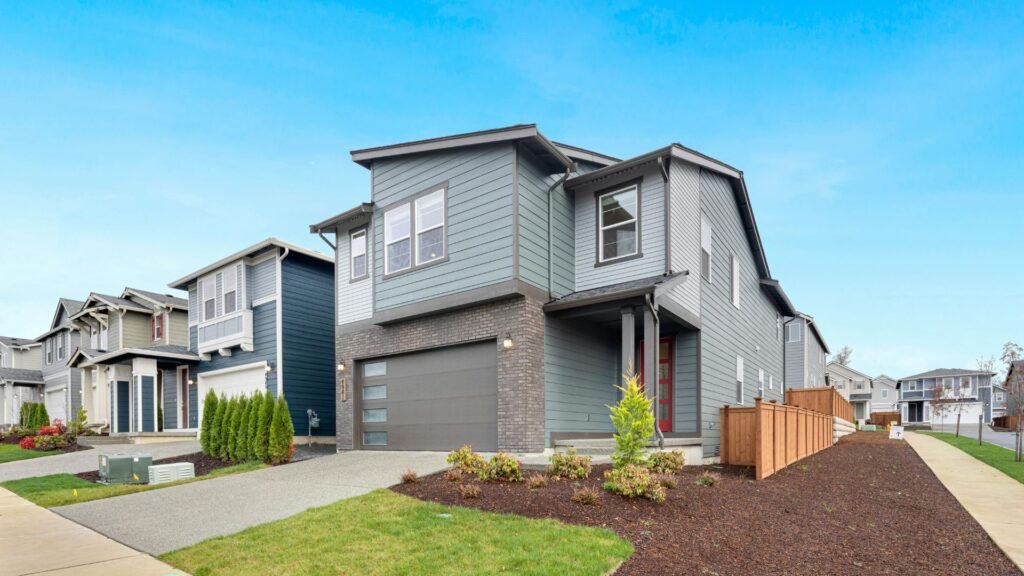
Common Mistakes To Avoid When Buying A New Build
Buying a new build home in New Zealand offers plenty of advantages, modern layouts, lower maintenance, and energy-efficient features. But even with all these perks, many buyers still make avoidable mistakes that can lead to stress, delays, or unexpected costs. Understanding what to watch out for can save you money and help you make smarter decisions during the process.
One of the most common missteps is not reading the contract carefully. New build contracts can be complex and often include specific clauses about timelines, penalties, and inclusions. Some agreements may allow for design changes, while others may not. Others might contain conditional clauses that shift risks to the buyer. Before signing anything, it’s essential to review every detail with a qualified lawyer who understands property law in New Zealand. Missing key terms could result in delays or financial setbacks later.
Another oversight is ignoring the future resale value of the home. While you might love the design or layout now, it’s worth thinking about how others might view the property in five to ten years. Will the location remain desirable? Is the home close to schools, transport, or growing communities? Features like these can influence the future market appeal. Focusing solely on your current needs without considering long-term value may limit your resale options.
Over-customising the property for personal taste is also a trap. It’s easy to get caught up in design decisions that reflect your personality, bold paint colours, niche fixtures, or unusual layouts. But going too far with personalisation can make it harder to sell the home down the track. Choosing timeless, neutral styles can help maintain the property’s appeal to a wider group of buyers.
Lastly, rushing into a build without proper due diligence can lead to poor builder selection or regrets later. Take time to research the builder’s reputation, past projects, and client reviews. Visit show homes, ask questions, and make sure the builder offers clear timelines and guarantees. Skipping this step can put you at risk of delays, cost blowouts, or quality issues.
By avoiding these common mistakes, you give yourself a better chance of enjoying a smooth build process and ending up with a home that not only fits your lifestyle but also holds its value in the long run. Always take your time, ask the right questions, and make informed choices every step of the way.
Thinking about buying a new build home in NZ? Visit our homepage to explore trusted builders, expert advice, and available listings, all in one place.
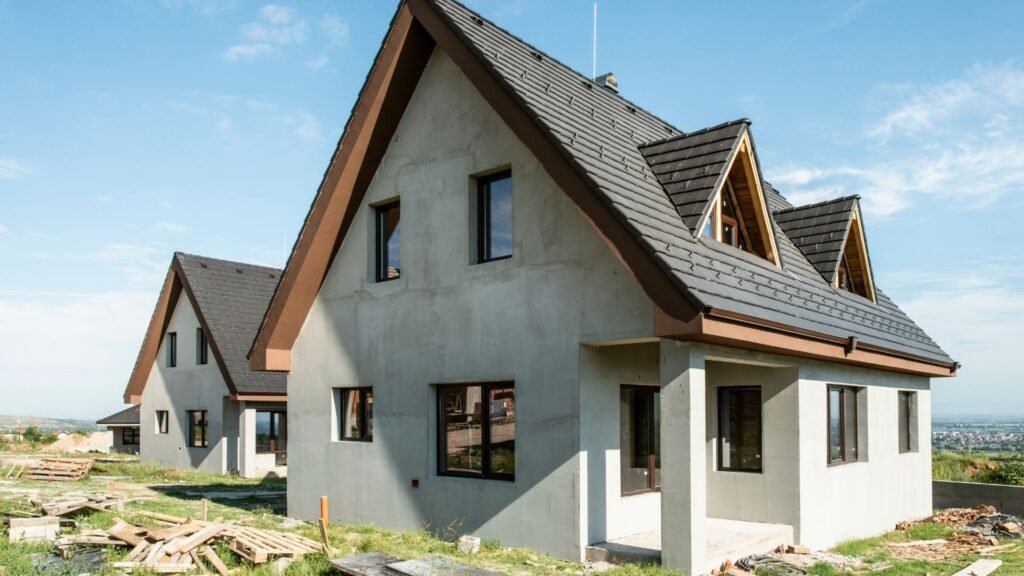
FAQs: About New Build Homes In NZ
What is considered a new build home in NZ?
A new build home in NZ refers to a newly constructed residential property that has never been occupied before. This includes turnkey homes, house and land packages, and custom-built homes.
What are the main benefits of buying a new build home?
New build homes offer lower maintenance, energy-efficient features, modern design, and often include warranties or guarantees. They may also be eligible for first-home buyer grants.
Are new build homes eligible for government grants in NZ?
Yes, many new build homes qualify for government incentives such as the First Home Grant, which helps first-time buyers cover part of their deposit if the home meets the criteria.
How much do new build homes cost in NZ?
Costs vary based on location, section size, builder, and design. On average, prices can range from $500,000 to over $1 million, depending on the region and specifications.
What’s the difference between a turnkey home and a house and land package?
A turnkey home is fully completed and ready to move into once paid. A house and land package allows you to buy the land and build the home to your chosen design, often in stages.
How long does it take to build a new home in NZ?
Build times typically range from 6 to 12 months, depending on the builder, design complexity, council approvals, and any delays due to weather or supply shortages.
Can I customise the design of a new build home?
Yes, customisation is often possible with house and land packages or full custom builds. However, turnkey homes usually come with fixed designs and limited options for changes.
What should I ask a builder before signing a contract?
Ask if they are LBP-registered, what warranties are included, what’s excluded from the build, the expected timeline, and how they handle delays or budget changes.
What hidden costs should I watch out for?
Hidden costs may include landscaping, driveways, fencing, council fees, legal fees, and upgrades not covered in the standard build contract.
Where can I find reliable new build home listings in NZ?
You can search on platforms like Trade Me Property, OneRoof, Realestate.co.nz, or visit the websites of trusted builders and developers directly.
Conclusion
Choosing a new build home in NZ comes down to what matters most to you, your lifestyle, budget, and long-term plans. New builds offer clear benefits like modern layouts, energy efficiency, lower maintenance, and the ability to move into a home tailored to your preferences. For many, the appeal lies in avoiding costly renovations and enjoying peace of mind with warranties and up-to-date building standards. Still, it’s important to weigh these advantages against factors like build timelines, location availability, and upfront costs. Think about how a new home fits into your current stage of life and future goals. Whether you’re buying your first home or upgrading to suit a growing family, take the time to do your research, ask the right questions, and consult with trusted professionals. Thinking about building your dream home? Explore new build options near you and make an informed choice.
